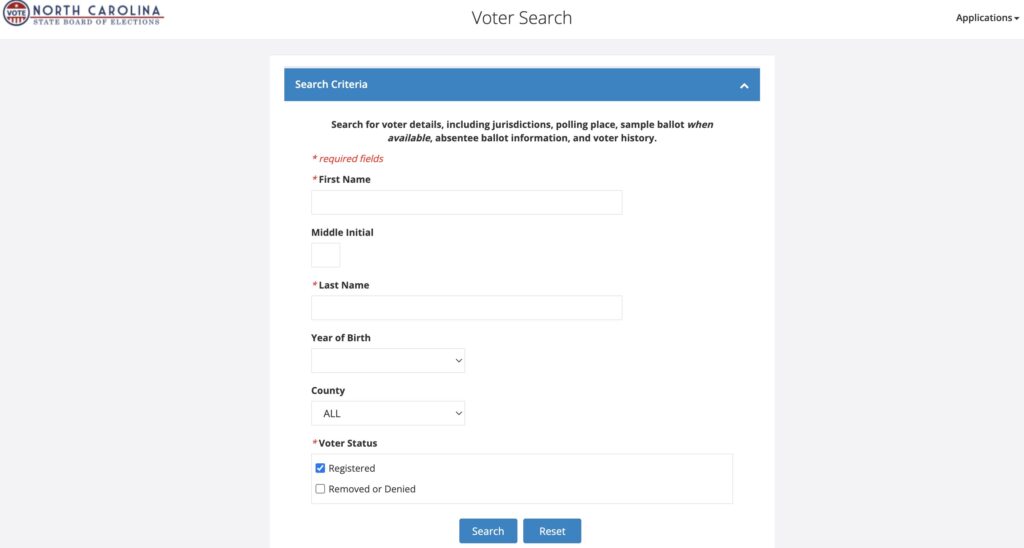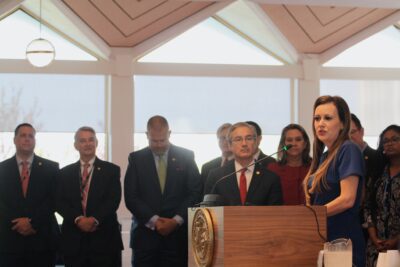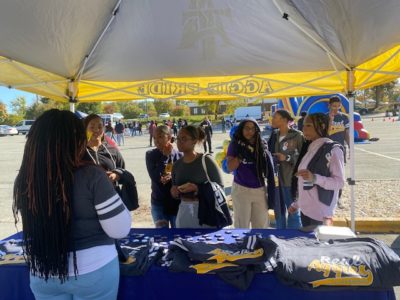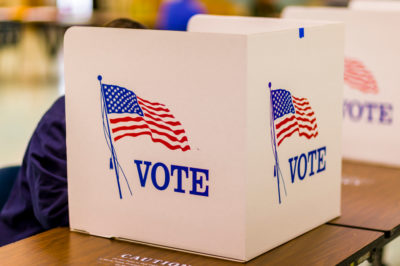|
|
Contents
- Voting in the primary election
- How to check voter status and information
- How to register or update your information
- How to vote in person
- How to vote with an absentee ballot
- Registering and voting as a college student
- Registering and voting if incarcerated
- Registering and voting if in the military or living aboard
- Provisional ballots
The new year is set to be a big one for local, state, and federal politics as we approach the 2024 primary and general elections.
The primary election will take place on March 5, and the general election will be on Nov. 5.
Voter registration is an essential part of participation in these elections. The deadline to register to vote in North Carolina is 25 days prior to Election Day, which means the deadline to register to vote in the upcoming primary is Feb. 9.
The deadline to register for the general election is Oct. 11. If you don’t register to vote by these times, you can access same-day registration during the early voting period.
If you are planning on participating in the 2024 elections and have some questions on how to register or cast your ballot, keep reading to learn more.
Note: North Carolina State Board of Elections is the source for most information in this article.
Voting in the primary election
For the primary election, if a voter is affiliated with a political party, they must only vote on the ballot connected to their party if their party’s ballot is available. Unaffiliated voters can vote on any party’s ballot, but they can only choose one ballot.
A second primary may be held on May 14 by request of the runner-up in a contest if no candidate in a specific race or races meet the threshold of votes to become the nominee. Visit this page following the primary election to determine if a race will have a second primary.
How to check voter status and information
Voters can check their registration status and review their voter information by using the Voter Search tool from the North Carolina State Board of Elections. Voters must enter their first and last names and can enter other information to narrow results.
Voters may then check to see if they are registered and also check to ensure their information is correct and current.


How to register or update your information
Voters can register to vote for the first time in a few ways.
- Voters may register or update information in person at the Department of Motor Vehicles (DMV).
- Existing DMV customers may register online.
- Voters may also submit a form by mail in either English or Spanish. After filling out the form and signing it, it can be mailed to the voter’s county board of elections.
Previously registered voters can follow similar steps as a first-time voter to update their name, address, or party affiliation. However, previously registered voters wishing to change or update their name may not do so online and must do so via mail.
Those who meet all qualifications to vote and submit a complete application will receive a voter registration card by mail. If a voter fails to receive a card, which partly serves as a means of address verification, they can contact their county board of elections. If the card is returned to the post office, it will be mailed a second time, but if the second card is denied, the registration will be rejected.
Voter Qualifications
- Voters must be a U.S. citizen. Citizenship documents are not required to register to vote.
- Voters must be at least 18 years old by the date of the general election. Those aged 17 who will be 18 by the general election may vote in the primary election.
- Those aged 16 and 17 can pre-register to vote.
- Voters must have lived in the county in which they registered for at least 30 days before Election Day.
- Voters cannot be serving a felony sentence.
If a voter’s status is listed as inactive, the voter is still registered and can vote. Inactive voters must be able to confirm their addresses when they vote, but no special document is required.
How to vote in person
North Carolinian voters must now bring a photo ID like a driver’s license or passport when voting. A list of permitted identification can be found here. Voters can still vote if they do not bring a photo ID by filling out an ID Exception Form. Read the list of exceptions here.
Those who still need an ID may obtain one for free from their county board of elections or a free non-driver’s ID card from the DMV.
How to vote early in person
During early voting, voters can vote at any early voting site in their county. To find your area’s early voting sites, select your county here.
Early voting for the March 5 primary election begins at 8 a.m. on Feb. 15 and runs until 3 p.m. March 2.
Early Voting for the Nov. 5 general election starts at 8 a.m. Thursday, Oct. 17 and ends at 3 p.m. Saturday, Nov. 2.
How to vote in person on Election Day
On Election Day, voters must cast their ballot at their assigned location, which can be found using a search tool here.
Election Day spans from 6:30 a.m. to 7:30 p.m. If a voter is still waiting in line after 7:30 p.m., they can still vote and cannot be turned away.
Eligible voters who need assistance to complete their ballot can request help at their polling place.
Some voters, such as those with disabilities, who may be unable to enter their polling place may qualify for curbside voting.
How to vote with an absentee ballot
Those unable to vote in person for any reason may vote via mail by requesting an absentee ballot. The deadline to request an absentee ballot is by 5 p.m. the Tuesday before Election Day.
There are two ways to request an absentee ballot:
- Make a request online with the N.C. Absentee Ballot Portal.
- Fill out a paper form and either mail it in or submit it in person to your county board of elections.
Voters may then mark their absentee ballot, seal the ballot, and sign the envelope. The voter then must have their envelope signed by a notary public or two witnesses over 18 years old. If receiving assistance to complete the ballot, the assistant must also sign the envelope.
Absentee voters must also include a copy of their photo ID or fill out the ID Exception Form.
Once complete and sealed, voters can either mail their absentee ballot to their county board of elections or bring it to the county board of elections or an early voting site in person.
Blind or visually impaired voters can request an accessible online ballot to use screen readers and leave a digital or typed signature. More information on accessible absentee voting can be found here.
The county board of elections must receive a voter’s absentee ballot before 7:30 p.m. on Election Day, meaning those mailing in their ballots must do so in advance. There is no grace period in North Carolina for late ballots, even if postmarked before Election Day.
Find more information on absentee voting here.
Voters can track their absentee ballot using BallotTrax.
Registering and voting as a college student
College and university students have the option to register to vote in the same county as their school if they are physically present at the school. If a student registers at their school address, that registration cancels any previous registration.
If a student wishes to vote at their home address, they may either request an absentee ballot or travel to vote in person.
Registering and voting if incarcerated
Incarcerated individuals convicted of misdemeanors in North Carolina still have the right to vote. These individuals may register to vote and obtain an absentee ballot to participate in the election, according to the U.S. Vote Foundation.
Those convicted of felonies lose the right to vote throughout the entirety of their sentence, including any time spent under probation, parole, or post-release supervision, but the right to vote is restored once the entire sentence has concluded.
Regardless of prior registration status, once the right to vote for previously convicted felons is reinstated, they must register to be able to vote. Having debt connected to the felony sentence doesn’t prevent the individual from registration unless the debt causes an extension of probation.
If a felony sentence ends after the voter registration deadline but before Election Day, voters can same-day register during early voting or on Election Day.
Registering and voting if in the military or living aboard
If a voter is a U.S. citizen residing outside of the country, an active duty military member, or a spouse or dependent of an active duty service member, they can register and vote through the Uniformed and Overseas Citizens Absentee Voting Act.
Provisional ballots
If a voter’s qualification or eligibility to participate in an election is called into question, such as an unreported change in address or voting at the wrong polling location, they will be given a provisional ballot. It is illegal for a voter to be turned away without being given the option of a provisional ballot.
Provisional ballots are held until election officials can determine whether or not the voter is eligible, and if eligible, the vote is counted. Election results are not officially final until every last ballot, including provisional ballots, are counted.
If voting provisionally, voters may go to the help station in their polling place to receive and privately fill out a Provisional Voting Application and are provided a provisional ballot and envelope. Once complete, the sealed envelope may be presented to the help station. Provisional voters will be given a Provisional Identification Number (PIN).
To check on a provisional ballot:
- Voters may use their PIN and birth date to assess the ballot’s status
- Online at Provisional Search.
- Or by calling (919) 814-0700 or toll-free at (866) 522-4723.
Statuses of provisional ballots will not be available before 10 days have passed since Election Day.






